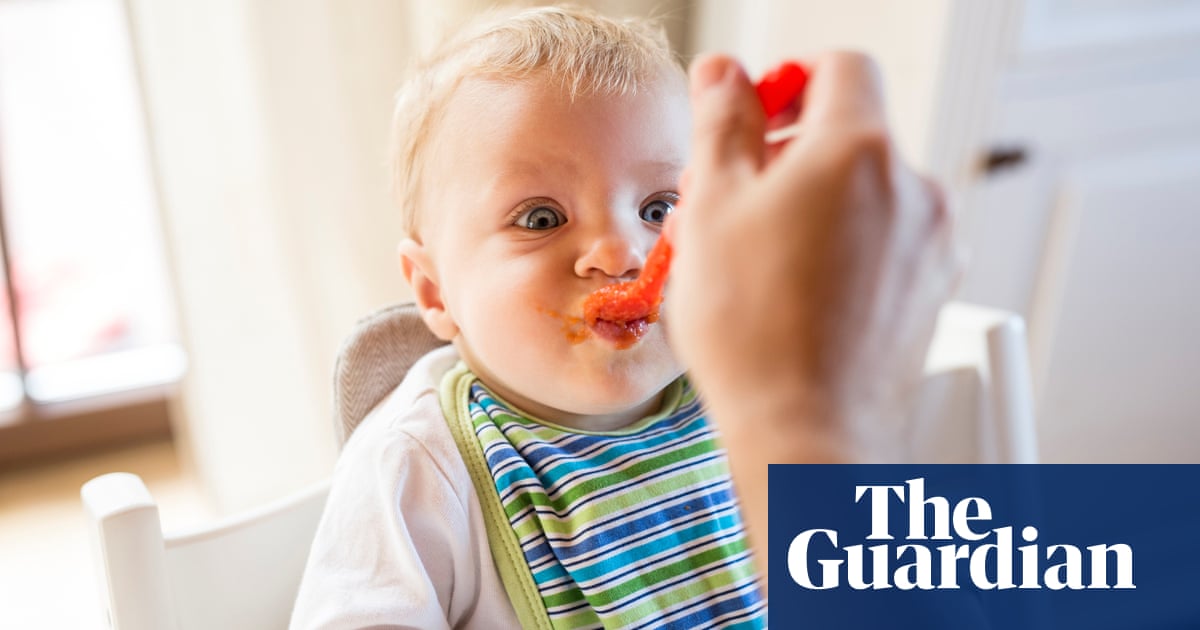A study found that the best brands such as ELLA and Heinz cuisine make food poor in terms of food that fail to meet the needs of children.
The discovery of groups stimulated the ministers’ invitation to strengthen the organization in the market, saying that the current situation will negatively affect the child’s growth and development.
Leeds Faculty of Science and Nutrition School found that some brands also implement misleading marketing claims, prompting them to urge the government to “behave now” in imposing the same traffic lighting system on chocolate and ice cream bars.
A pear in ELLA and Beach Baby Rice kitchen are found only 3 %, while sugar constitutes 60 % calories.
Heinz Fruity Banana Cussard gets 71 % of total calories of sugar, with its components that only contain milk powder by 4 %, while small oat porridge is 29 % of sugar.
the studyFunded by any? A box, looks at 632 food products marketed towards children and young children under the age of three.
It found that 41 % of the main meals that were marketed for children had sugar levels that were very high and that 21 % of ready -made fruit products, grains and meals were very water and did not provide adequate nutrition.
He also discovered that many early foods are sold as suitable for children between the ages of four months, which contradict NHS and direct the World Health Organization.
The study also found that a quarter of the analyzed products were very high in sugar, and will require a sugar warning mark at the front of the package, according to the guidelines of the World Health Organization. According to NHS instructions, children between the ages of 10 grams of sugar per day should not have more than 14 grams per day for children between the ages of two and three.
The sugar recommendation applies to free sugars that occur naturally and added sugars.
The report also wiped over 1,000 parents. She found that 70 % of parents agreed that high -sugar -sugar -sugar foods should contain warning stickers in front of a package, while 59 % were concerned about high levels of sugars that occur naturally in food.
“Voluntary guidelines are often ineffective, and therefore there is a need for an organization to ensure the occurrence of change,” said Dr. Diane Thripton, the lead author of the study.
“With about 1.7 million children between the ages of six and 36 months in the United Kingdom, children’s food is a huge market. It provides inappropriate products with bad food quality that negatively affects the child’s growth and development.”
After promoting the newsletter
“As a result of the prevalent marketing marketing, parents purchase products unintentionally that are not good enough in a nutritional point of view,” said Dr. Vicky Sebson, director of the First Steps Nutrition Trust.
Soo Davis, head of the food policy that? , “The government needs to update the old laws of children’s food to ensure that there are more strict controls for their composition-including the limits on sugar and salt content-make the signs clear and introduction to any wrong marketing claims indicating that the products are healthier.”
“There is nothing misleading about the name of this product,” said an ELLA’s Kitchen spokesman. It follows strict legislation on how foods are naming, and clearly reflects what is in the bag – pears, peaches and small rice – in terms of quantity, “said an ELLA’s Kitchen spokesman.
“The demand for” no additional sugar “is approved legally – and completely carefully. We never add sugar to our weaning products; all the sweetness comes naturally from the fruits and vegetables that we use to make.”
“We are proud of the role we play in the lives of families and we remain committed to the health and well -being of young children and young children. We offer high -quality products on the basis of nutrition science that meets the requirements of this stage of life and commitment to organizing the United Kingdom/European Union,” said a spokesman for Kraft Heinz.
“Comfortable and seized bags, made of natural ingredients without added sugars, should be used as a supplementary part of a diverse weaving diet (six months+) and is designed to be pressed in a bowl or directly to a spoon – as it is connected to the package.”
A spokesman for the Ministry of Health and Social Welfare said: “The current laws already define nutrition needs for children’s food, and we support enforcement against any product that does not meet these expectations.”
